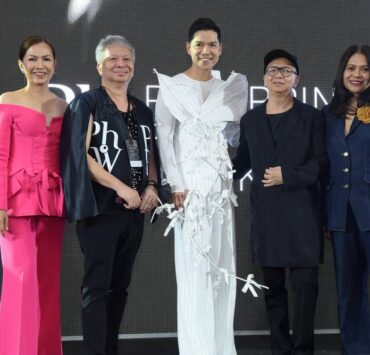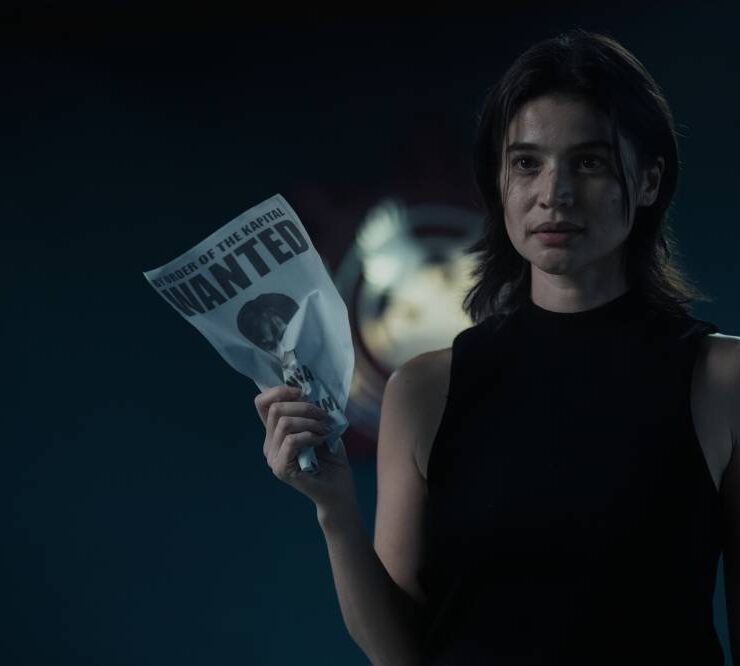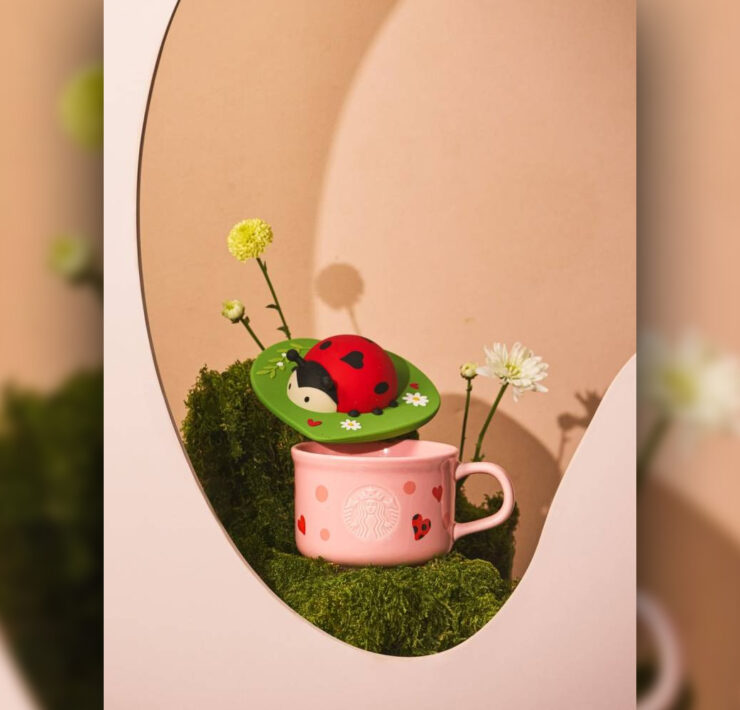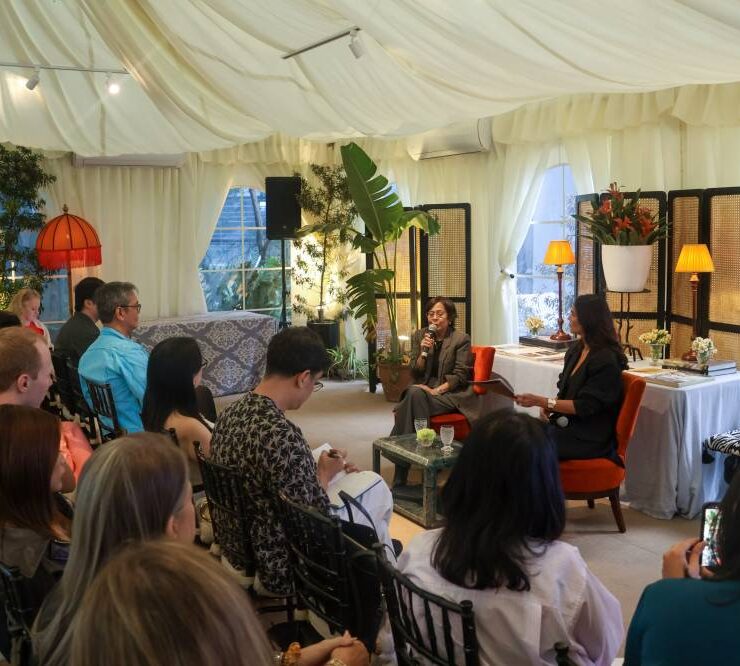Young Asian tech innovators honored for social impact
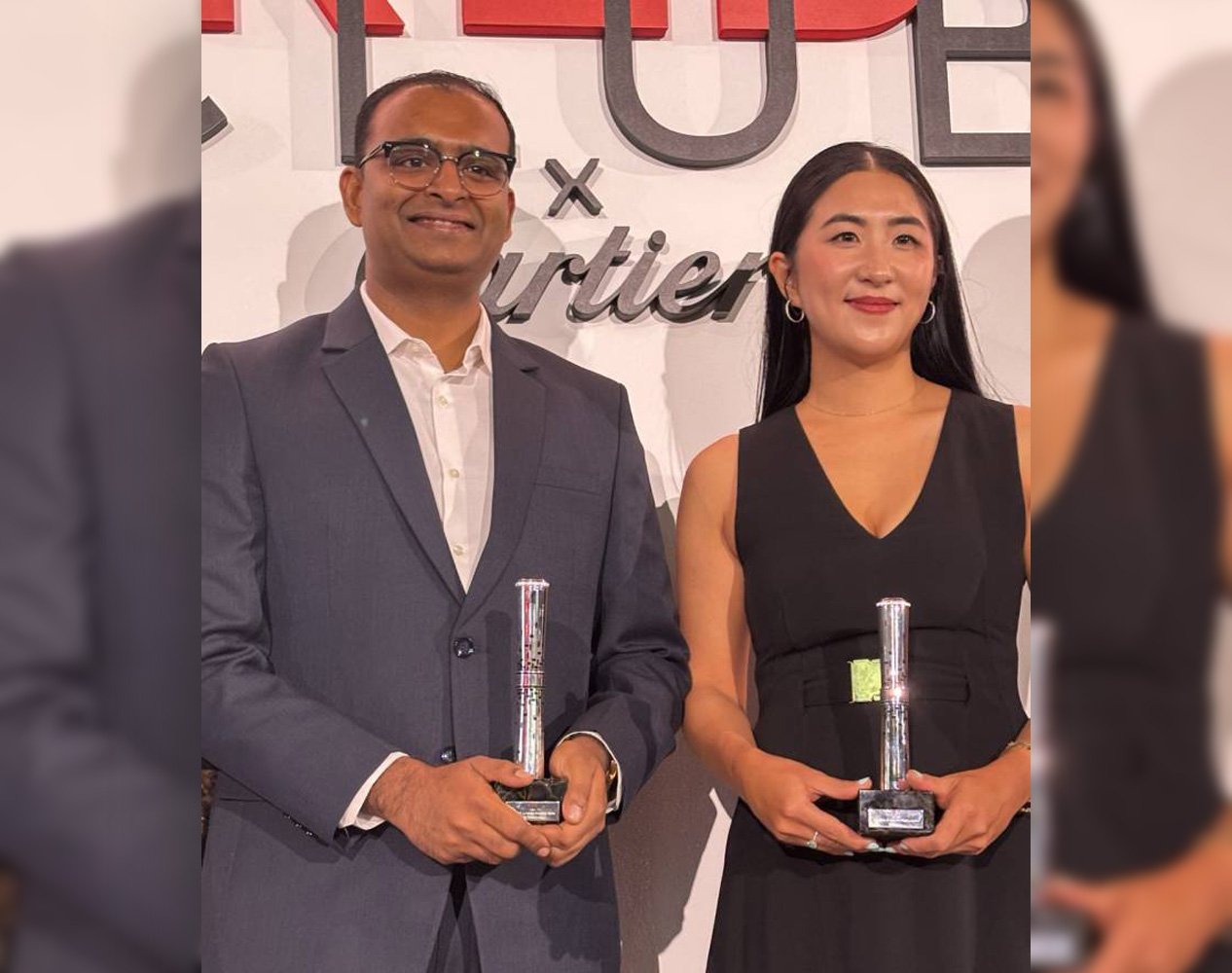
The founders of two Asia-based sustainable tech startups were named joint winners of the Red Club x Cartier Young Leader Award 2024. Didi Gan of Singapore, who started N&E Innovations with her best friend, shared the limelight with India’s Suraj Nandakumar, cofounder of Recity Network, at the awarding held last month at the National Gallery in the Lion City.
The winners were chosen from over 500 entries and bested the two other finalists.
Red Club x Cartier was started in 2019 by the luxury French jeweler to recognize visionary entrepreneurs ages 20 to 40 from all over the world who are making a social impact with their businesses.
“At Cartier, we believe in the power of young leaders to drive meaningful change,” said Cyrille Vigneron, chairman of Cartier Culture and Philanthropy. “The Young Leader Award is a testament to our commitment to those who contribute to shaping a better future. We are honored to support these extraordinary individuals who are making a tangible difference in our world by inventing across sectors solutions, stimulating economic progress while improving environmental and social well-being.”
Spurred by the COVID-19 pandemic, Gan, with Dr. Jaslyn Lee, cofounder and chief technology officer, developed ViKang, a 100-percent natural antimicrobial derived from upcycled food waste. Ninety-eight percent of the ingredients in their biotech company’s disinfectants are made from edible ingredients, making them safe even when accidentally ingested by kids. They’re sold under the brand C2+.
Nandakumar’s company, meanwhile, is into ethically sourced, traceable post-consumer plastic recyclables. Started in 2017, Recity Network maximizes the circularity of plastics because it believes recovering plastic waste in the wild is just half the story. Their goal by 2030 is to recycle and recirculate 350 metric tons of plastics globally.
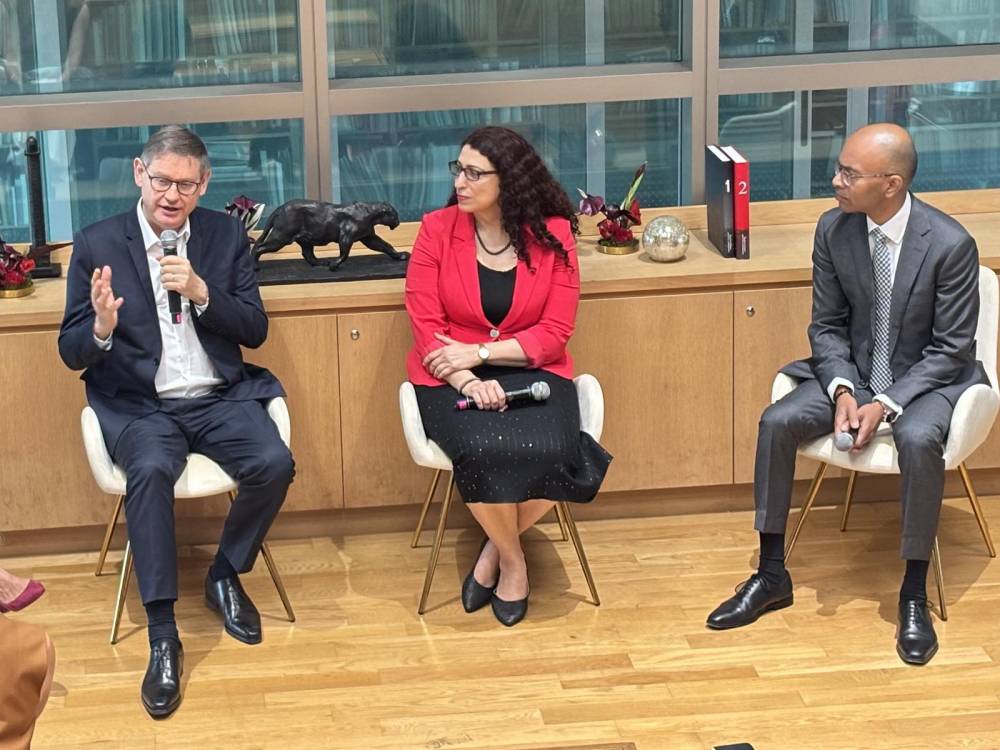
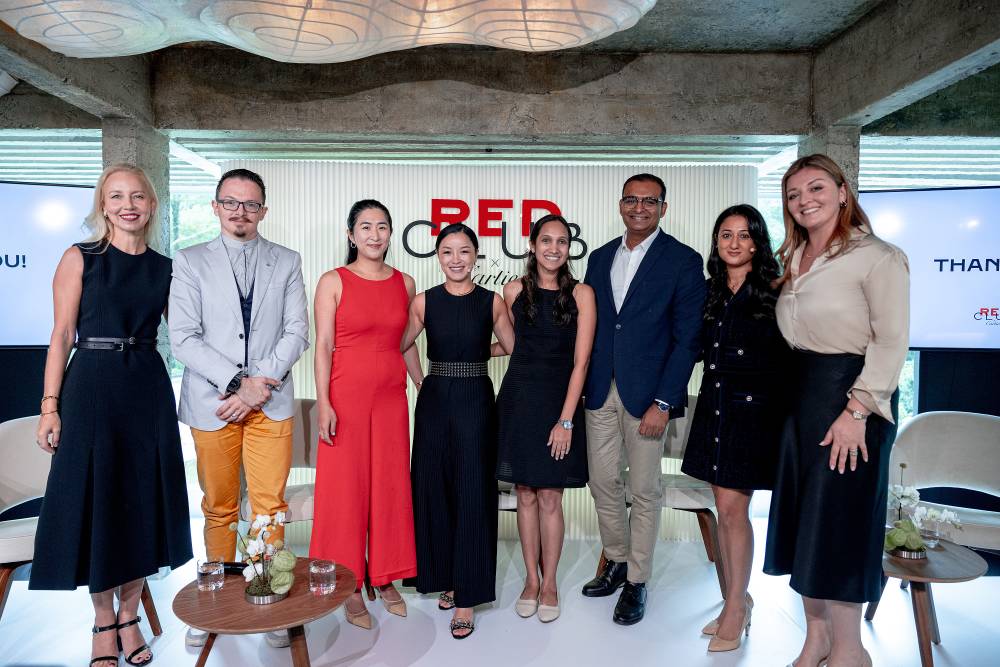
Prize money plus mentorship
The winners both received a €50,000 grant, plus a tailored mentorship program from this year’s university partners, the National University of Singapore Business School and the University of Sydney Business School. That, and the immeasurable value of international media exposure.
Their runners-up, Enrico Di Oto of Italy and Aasawari Kane of India, also each received a €10,000 grant.
Di Oto is the founder and CEO of the medical tech company OACP, whose focus is rapid cancer diagnosis and other advanced chemical and biotech solutions. Kane’s company, PadCare Labs, is into recycling menstrual pads for valuable materials.
Nandakumar and Gan created both their companies out of a need. The Indian national, an urban planner by training, related how a 2016 fire in a landfill near his home turned him into an “accidental entrepreneur.”
“The fire was so large that the plume of smoke spread over 20 km, and I had to relocate my family for seven to eight days because we couldn’t breathe at that point,” he said. “When you start asking questions, nobody has answers. The government does not have answers. The brand owners don’t have answers. The waste managers don’t have answers… So I fell into the problem of an accidental entrepreneur. But then, the problem takes over you, and then you just keep doing and eventually they call you an entrepreneur.”
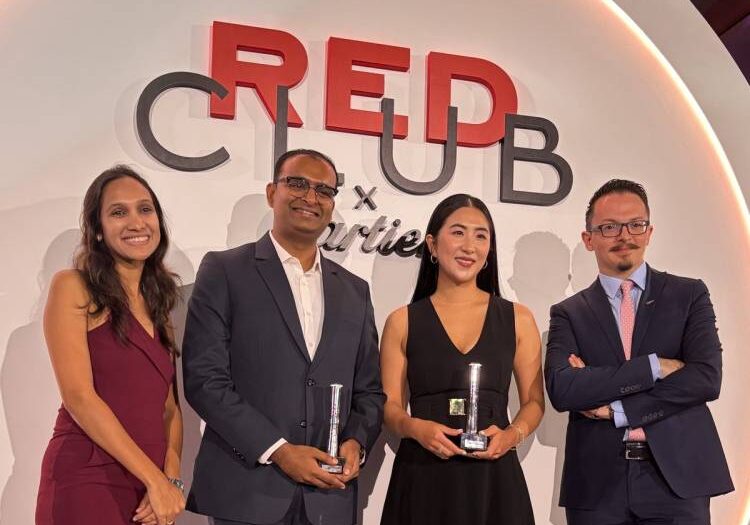
Market acceptance
The soft-spoken Gan, who has a degree in biomedicine from the University of Melbourne, told Lifestyle she and her childhood best friend Lee combined their know-how in creating ViKang. Lee has a biomed degree from Melbourne’s Monash University and a Ph.D in chemical and biomedical engineering from Singapore’s Nanyang Technological University.
Gan’s daughter and Lee both have bad eczema, so that alcohol-based sanitizers are a no-no. Thus, they created ViKang, which means protecting your and your family’s health in Chinese, Gan explained.
ViKang is created from upcycled cashew and banana peels sourced from plantations across Southeast Asia, including the Philippines. The technology can potentially be applied in other industries, like cosmetics and wastewater treatment, said Gan.
Gan, who has only 13 employees thus far—Nandakumar’s company has about 800—said that their biggest hurdle is market acceptance. “There’s a negative connotation when you say it’s from food waste. So we need to do a lot of educating.”
From hygiene products and medical-grade face masks, N&E has now expanded into food packaging with their groundbreaking antibacterial cling wrap that breaks down 89 percent of ethylene gas to prolong the life of fresh produce—ideal for fruit exporters like the Philippines, she noted. The ViKang cling wrap, Gan added, is biodegradable.
N&E’s product line is available in Singapore, South Korea, and also soon in Thailand, the Philippines, and Germany. In South Korea, they found an unlikely market in pet owners for their hygiene products.
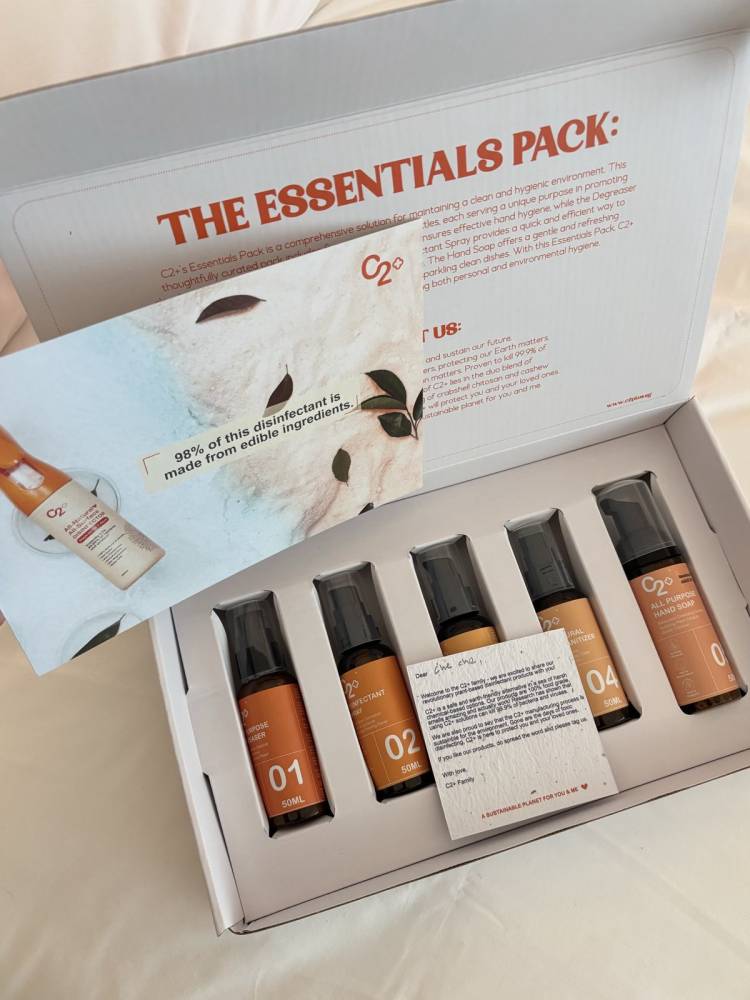
Balancing profits and social impact
Di Oto, who sat down with Lifestyle before the winners were announced, explained how his cancer diagnostics technology, certified in Europe and Japan, reduces test costs and speeds up diagnosis from weeks to mere hours, or same day results.
Getting certification, the Italian biologist said, has been the most difficult part of his journey, though he acknowledged his luck of receiving approval in Europe pre-COVID. Now it costs 10 times more to be certified with new laws in place, he said.
The pandemic, Di Oto related, nearly bankrupted his company, as all their funds were tied up in certification, and the oncological diagnostic market contracted by 40 percent. During the health crisis, they survived as a business by applying their technology in PCR test kits.
On balancing profits and making sure their technology reaches more people at a lower cost, Di Oto said: “We started the business to basically spread faster our technology into the market, because I believe that the market is a very powerful instrument to spread innovations, more than publishing in medical journals. Because while getting published means to provide free know-how, it doesn’t mean that everyone can read your published papers and also have the facilities and the capabilities to replicate the experiment.”
This is why he has no qualms about partnering with Big Pharma like Roche, which has resources to bring his technology to more people. But would he ever consider selling his company?
“It’s what we would like to accomplish at a certain point of our trajectory,” he said. “Not because we would like to be millionaires living in the seaside in the Philippines without working, but because we believe that to have a faster spread of our technology, the size that we may reach on our own at the optimum is not enough… So the only way is to give our technology to the bigger player and let them do their job.”
Doing more social good
Gan learned entrepreneurship from her mother, who single-handedly raised five kids, starting with a single sewing machine, which she grew into three textile factories. “I like to dream big and think big,” Gan said, while admitting raising capital as two women founders have been a challenge. It’s a sentiment echoed by 2023 winner Dr. Bea Bakshi of the United Kingdom.
“As a female CEO and a person of color, less than 2 percent of venture capital goes to my demographic,” said Dr. Bakshi, founder of C the Signs, a platform that uses artificial intelligence to identify patients at risk of cancer at the earliest stage of the disease.
“When you think about Cartier, which is not known for social impact or healthcare or sustainability, it’s because this comes from a value driver, that we need to be doing more social good in the world in order to make it a better place,” Dr. Bakshi said.
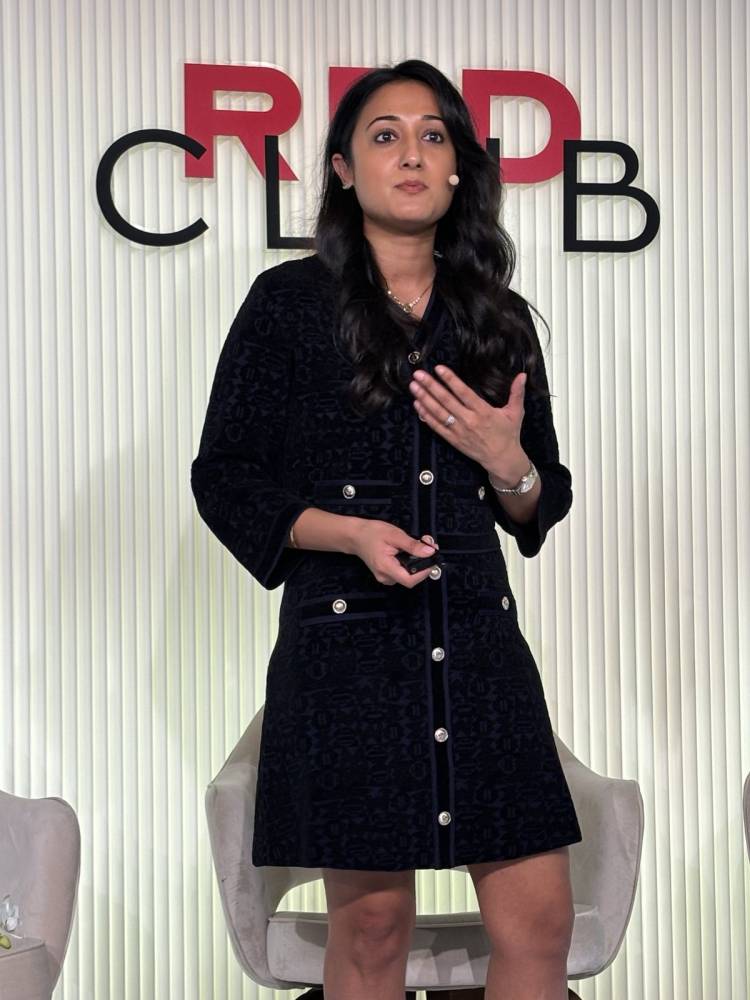
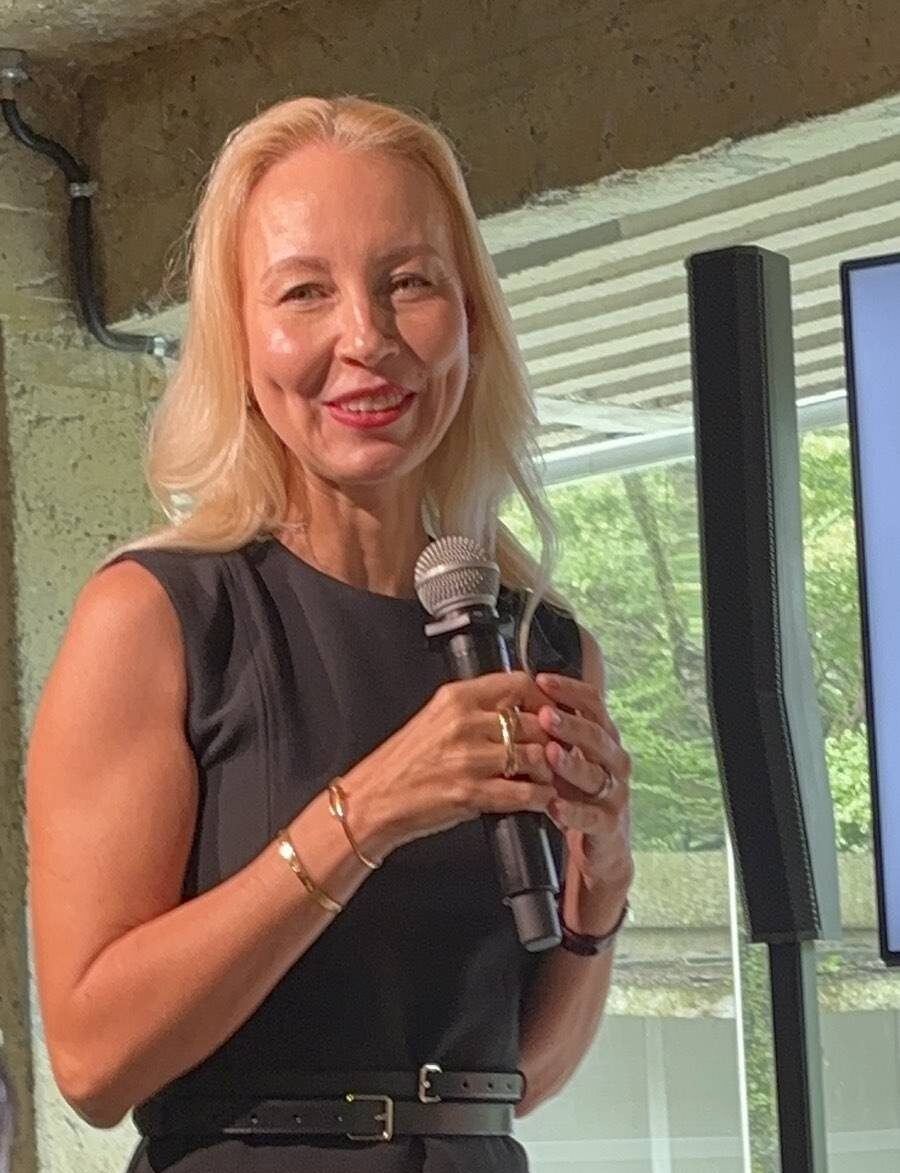
“Cartier has invested over 100 million euros on philanthropic efforts across the world, and this is critical from a thought leadership perspective, because when you start with social impact, you’re starting with a problem.
“You’re not starting with a profit-and-loss spreadsheet and looking at how you can grow and scale a business. And social impact has the biggest rewards we know in society, at a time when there’s a lot of division and a lot of fractious relationships across the world…and working toward social good is really, really critical.
“Cartier’s Young Leader Award removes barriers…that founders and CEOs can exist anywhere across the whole world. It’s just a case of being able to find them, believe in them, and give them some funding so they can get their projects off the ground and get them to scale fantastically.”
The search for the next winner of the Red Club x Cartier Young Leader Award begins in the fall of 2025.















